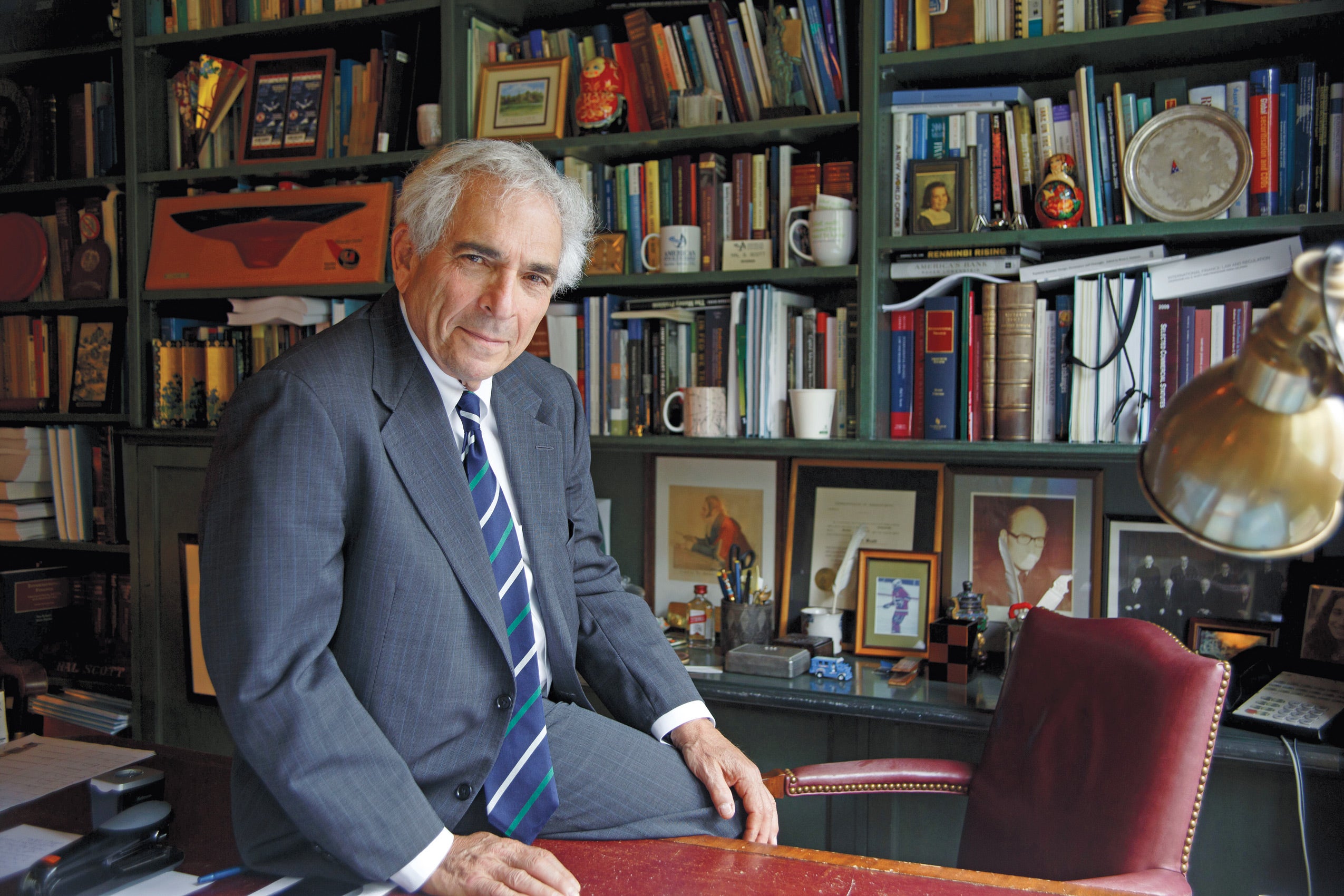In October, The Program on International Financial Systems (PIFS) at Harvard Law School celebrated its 30th anniversary by holding the kind of forum it has been hosting for three decades — convening financial leaders, high-ranking government officials, and distinguished academics from around the world to discuss the most pressing issues in international finance.
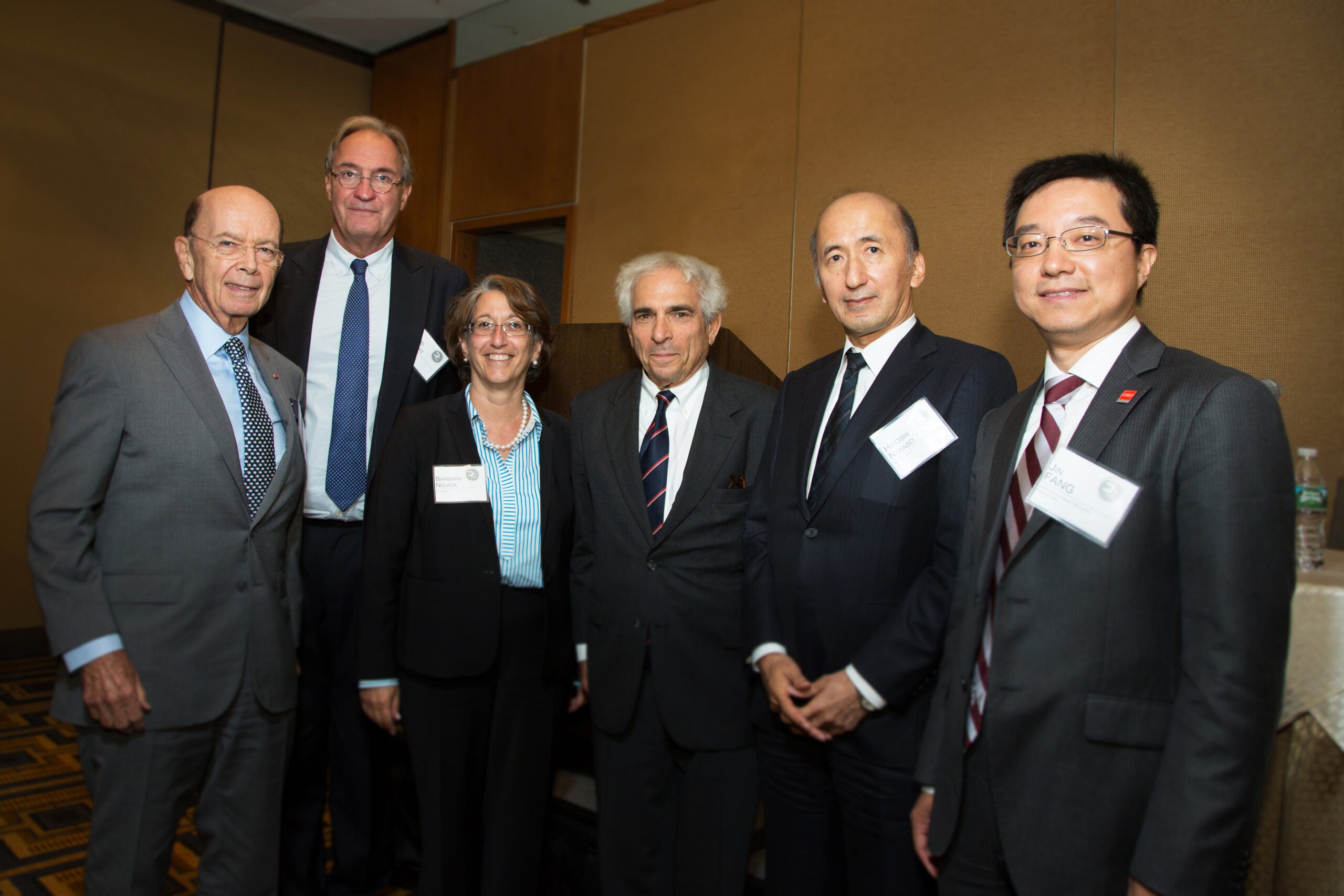
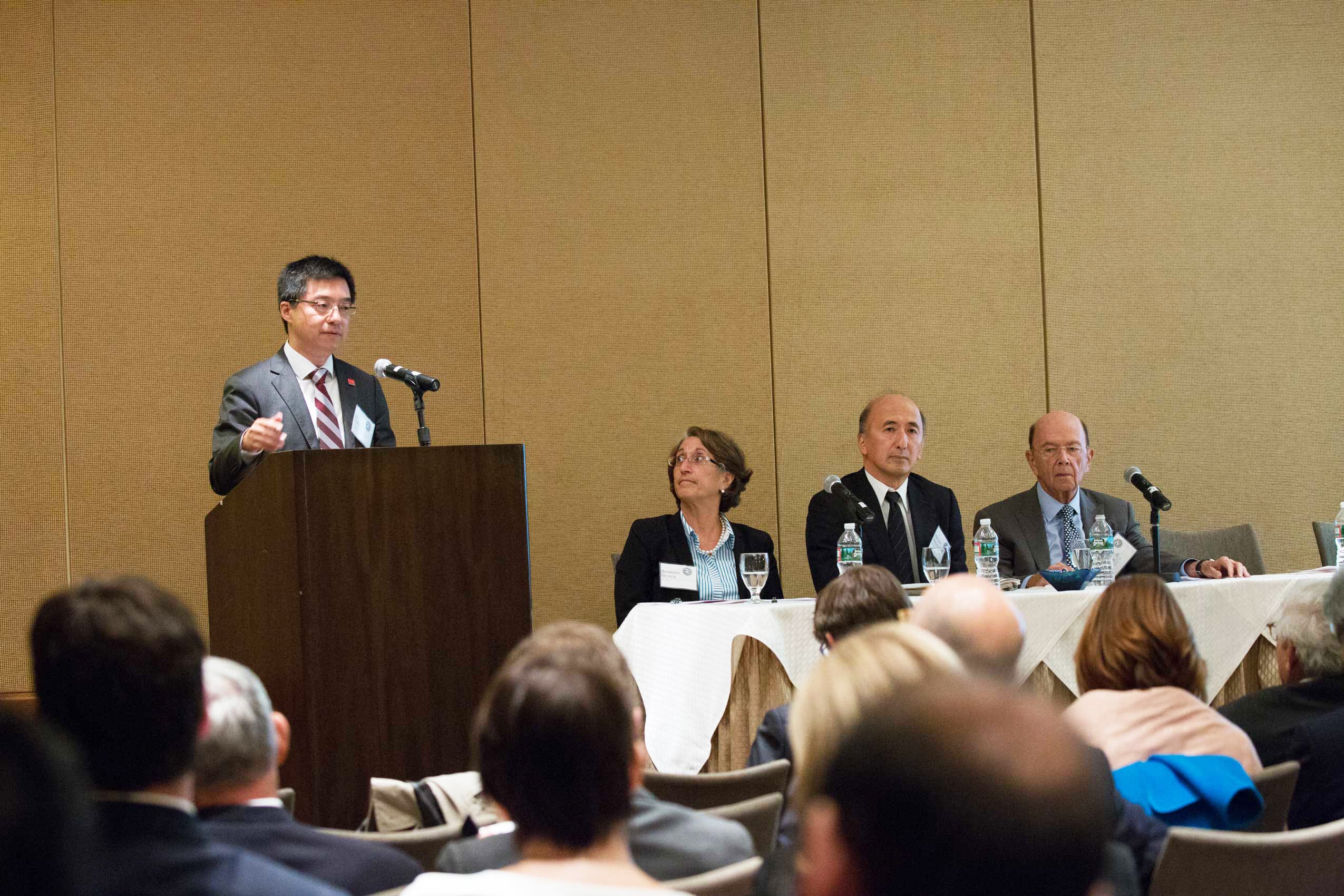
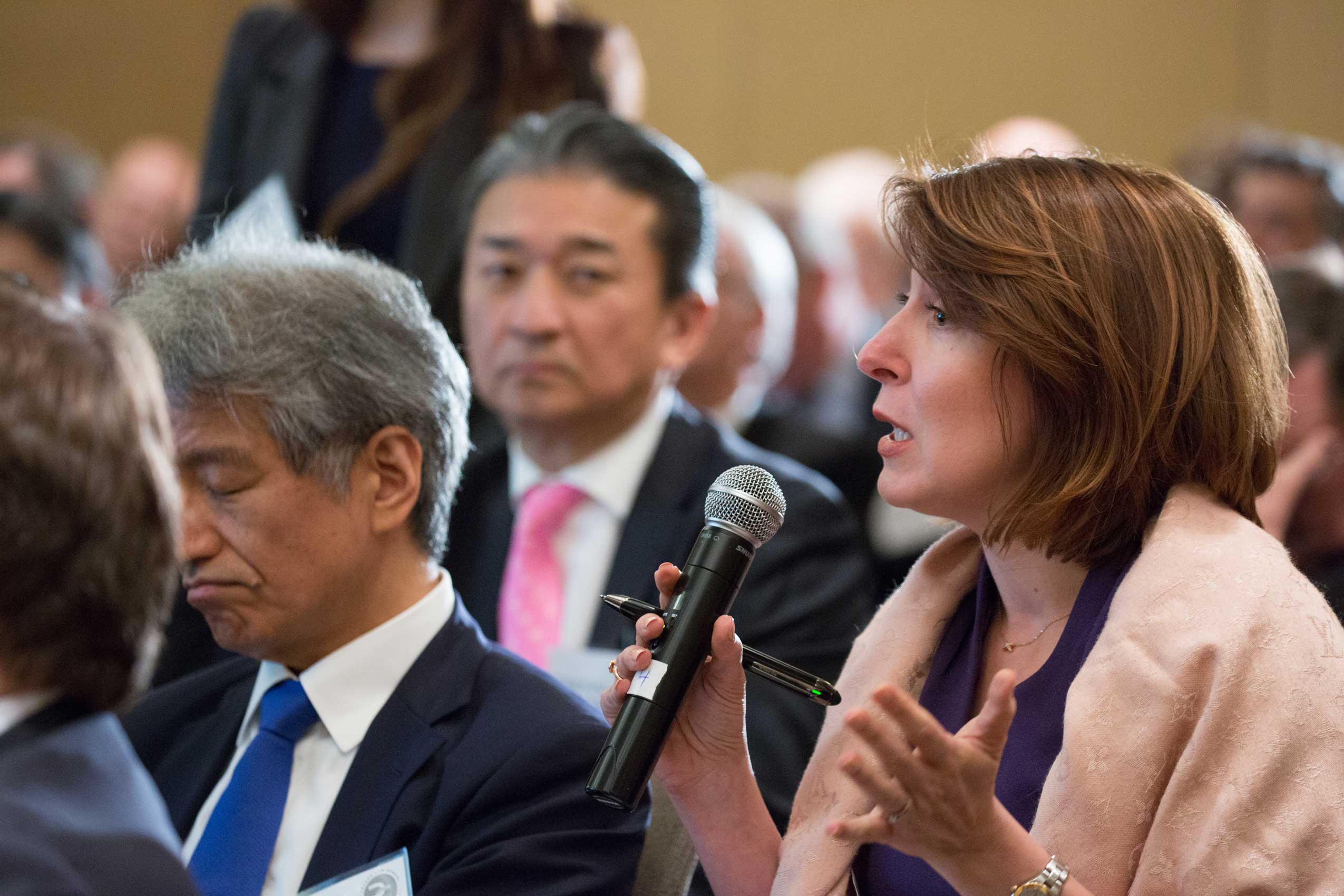
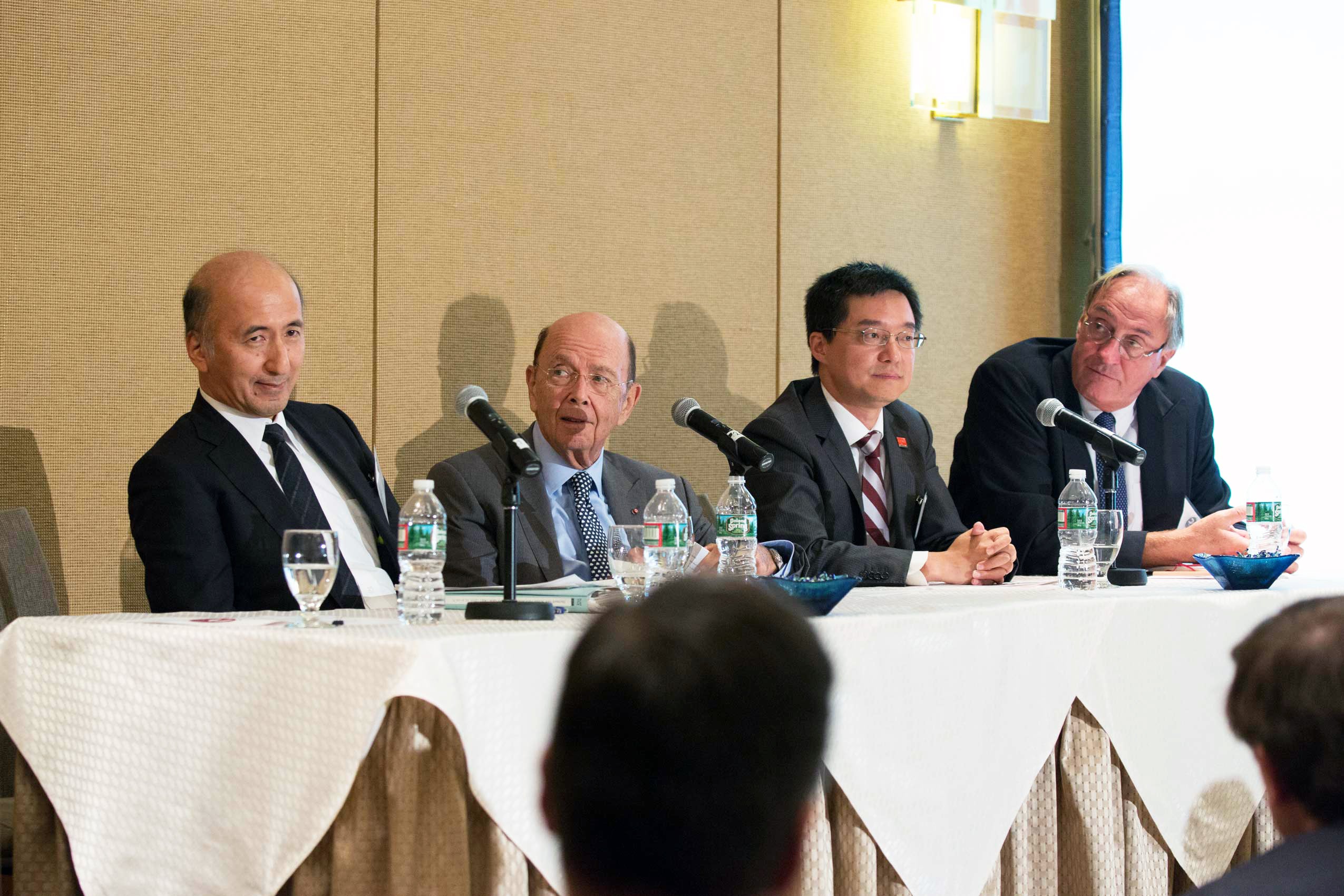
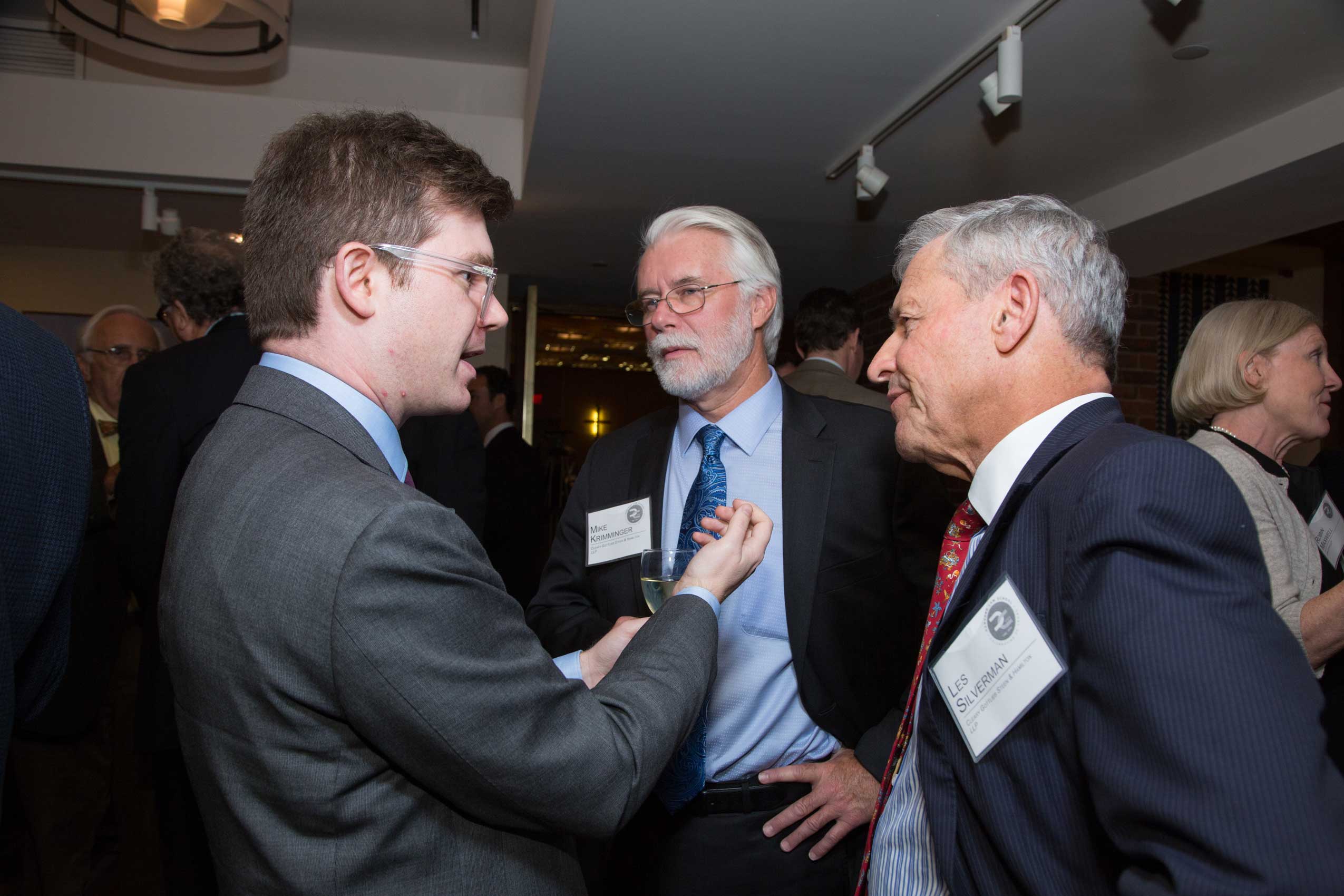
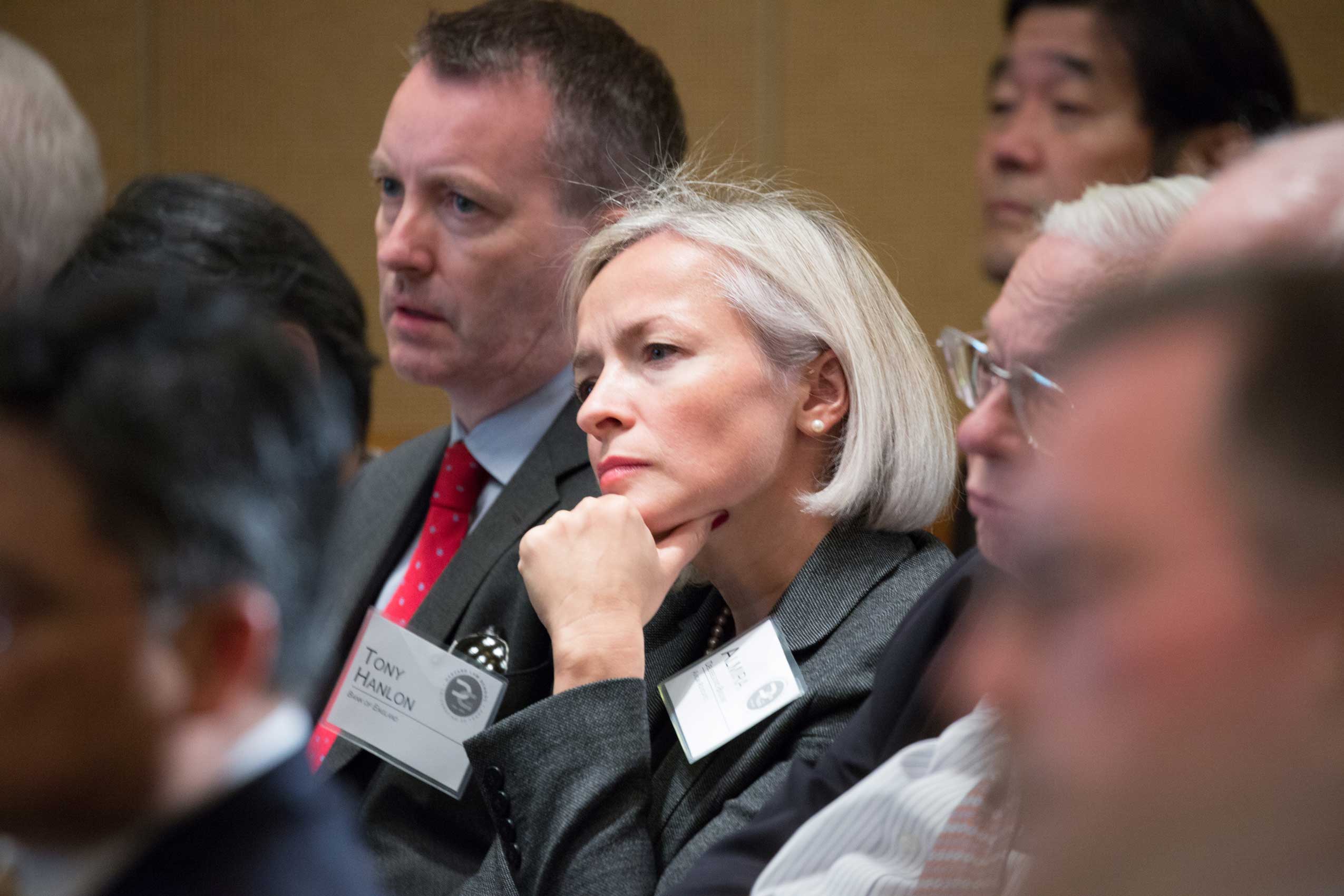
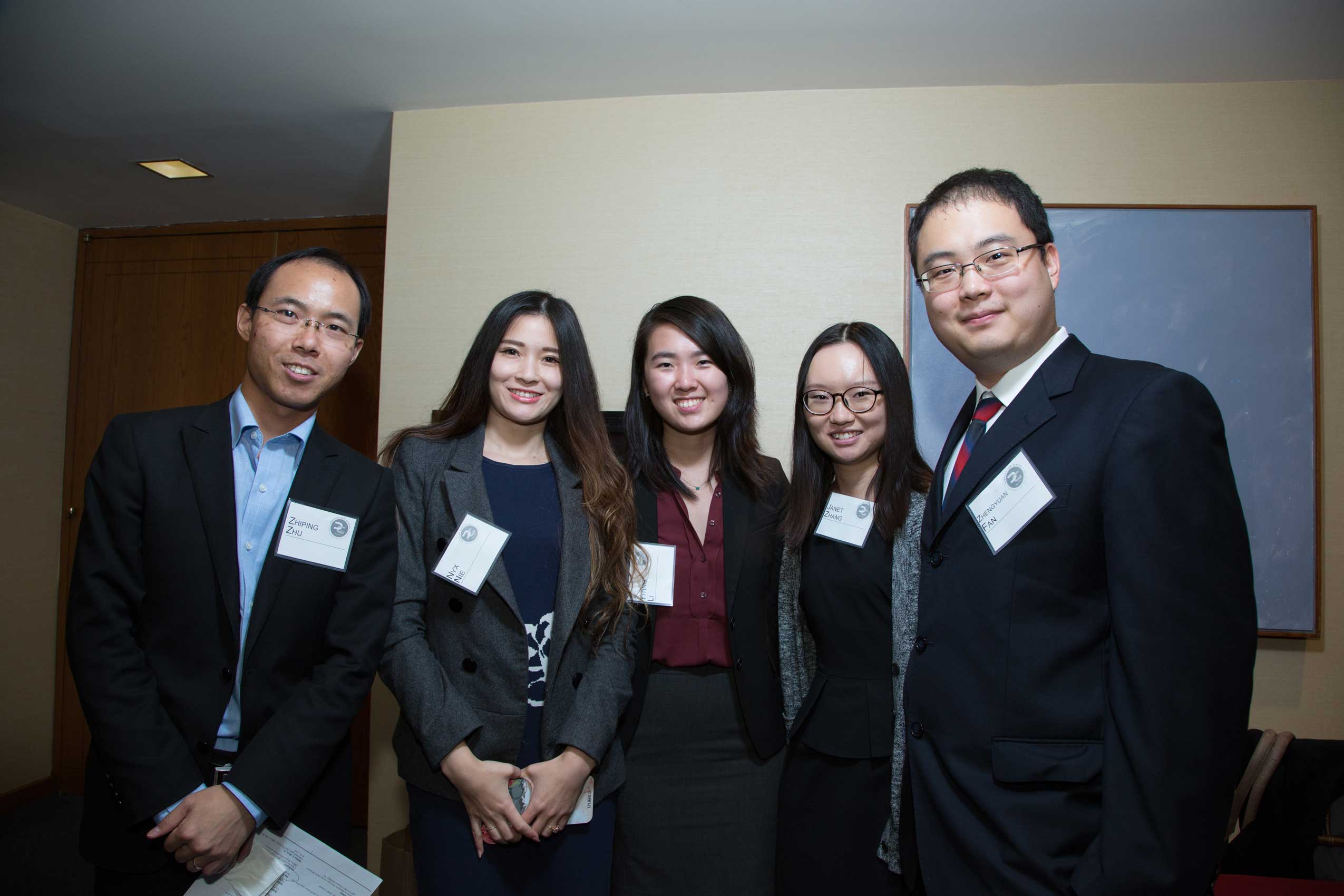
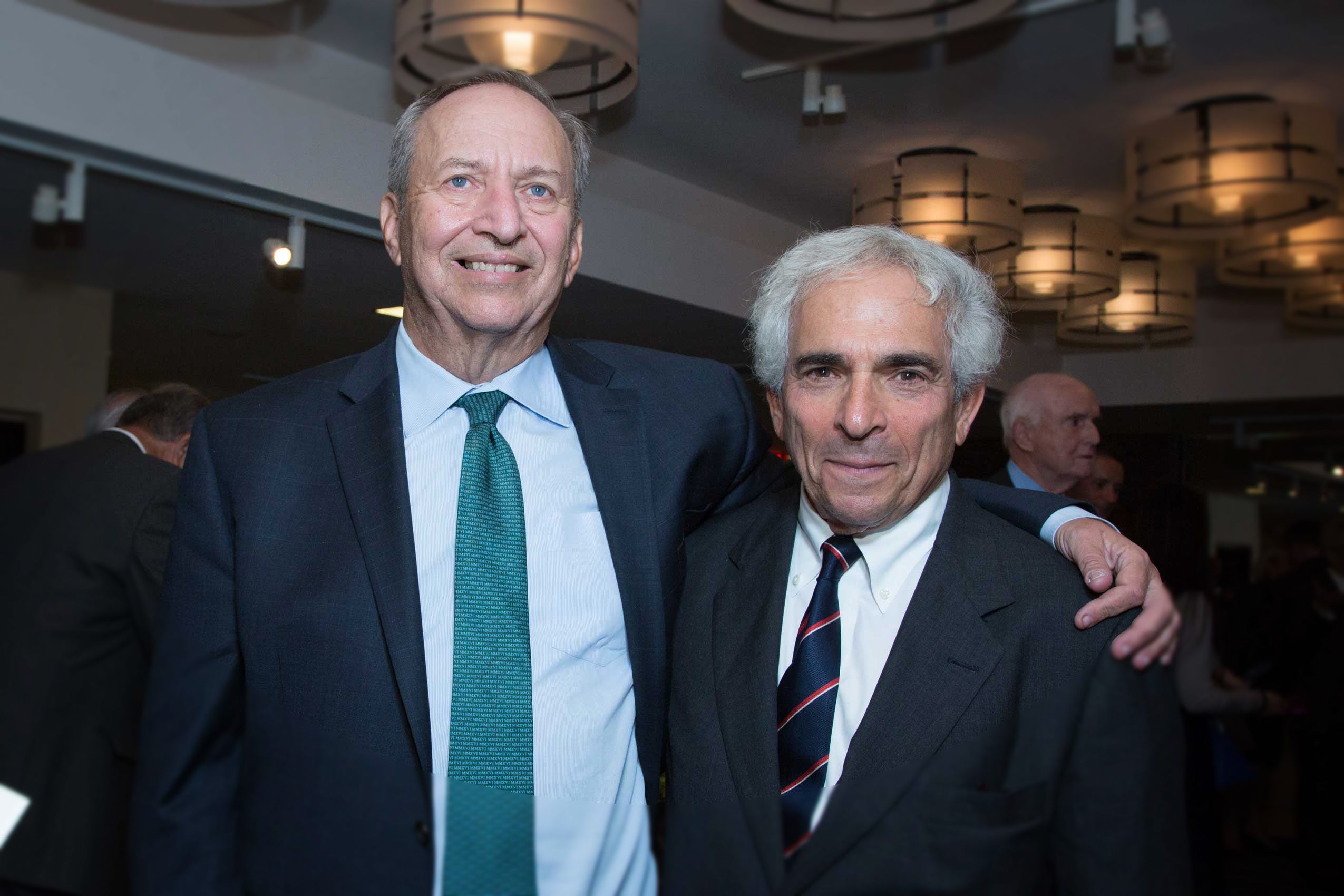
The Oct. 5 anniversary gala featured a panel discussion with a number of distinguished representatives from Japan, China, Europe, and other nations. Panelists included Hiroshi Nakaso, deputy governor, Bank of Japan; Jin Fang, deputy secretary general, China Development Research Foundation; Wilbur Ross, chairman & CEO, WL Ross & Co.; David Wright, chair, EUROFI; and Barbara Novick, vice chairman, BlackRock.
In a keynote address, Harvard University President Emeritus and former U.S. Treasury Secretary Lawrence Summers highlighted the accomplishments of PIFS, and shared his thoughts on some major issues facing the world in the financial area.
Summers delivered the keynote address during PIFS inaugural symposium in 1998: “Symposium on Building the Financial System of the 21st Century: An agenda for Japan and the United States.”
Hal Scott, Nomura Professor of International Financial Systems at Harvard Law School, co-founded PIFS in 1986, with Phil Wellons, HLS Lecturer on Law from 1988 to 2002. Over the years, under the directorship of Scott, PIFS has convened thought leaders, published reports, taught students and consulted on a variety of projects. After the Japan symposium was held in 1998, the invitation-only symposium became the hallmark of the program. Since that time, PIFS has expanded to include annual meetings between representatives from the United States and Europe (since 2002), China (since 2004), and Latin America (since 2012). Last year, PIFS held its first symposium in India.
In a Q&A with Harvard Law Today, Scott discussed the program’s past accomplishments and where it is headed in the future.
How has PIFS helped the university and the law school connect and influence external stakeholders, such as legislators, government officials, and the private sector?
To answer that question it’s important to understand how these symposia are organized and who attends them. First of all, they’re invitation-only. Secondly — and I’m now focusing on the three major ones that we have with Japan, China, and Europe — approximately 125 people are there, and each side is composed of government, industry, and academics. It’s very unusual to have a meeting even on one side of those three groups, because they rarely get together in one group.
And so now you have a meeting where both sides — academics from China, academics from the U.S., as an example, industry leaders from the U.S. and industry leaders from China, and government officials from China and government officials from the U.S. — all meet to discuss issues of common concern. We identify three or four of those issues in advance, and organize the program around it. We have approximately two days of discussions, and we produce a report summing up, not by individual attribution, but basically what was said, what people’s thoughts were at the symposium. And that report goes to all the participants, goes to the world, but, most importantly, goes to the governments of the two sides that are involved. Those reports have influence, because they represent the views of an important group of people from both countries about the future of these issues, and over time it’s been clear that those reports have had an influence on policy.
What issues were identified in this year’s panel discussion?
The deputy governor of the Bank of Japan said he thought the most important issue for Japan was so-called negative interest rates. Japan has been dealing with a problem of disinflation — prices going down — which seems to be a good thing for consumers, but actually, in the long run, businesses don’t want to spend if prices are going down, because they think maybe they’ll go down further. So Japan has been looking for ways to stimulate some reasonable level of inflation in Japan. He talked about the situation in which, basically, customers of banks have to pay the banks to take their money, and the banks that put their money with the Bank of Japan have to pay the Bank of Japan to put their money there, contrary to the normal situation. This is meant to stimulate a little bit of inflation, which is good for the economy.
Wilbur Ross, the industrialist, who was the next speaker, talked about problems of trade policy, and the lack of consensus around what trade policy should be. It has been a big part of the debate in presidential elections in the United States, but more generally, it’s sort of globalization under attack.
The third speaker thought the economic situation of China was the big issue. There have been losses of the banks. There is concern about a lower growth rate. He talked about whether that’s going to lead to some big crisis in China, which he did not think was the case. But he also said that the only way we are going to avoid this is if the government’s going to bail out all the banks. And, of course, that would never happen here anymore. But that in itself is bad, because these state-owned banks will now get bailed out. They won’t be efficient. And how do we get out of this mess? We’re not going to have a financial crisis in China, but we’re going to have this sort of unproductive financial sector, which sort of doesn’t respond to market forces.
The last speaker, from Europe, talked about Brexit. How are you going to deal with the exit of the UK from the EU? Barbara Novick, who is the Vice Chairman of BlackRock, and the moderator of the panel, said that from her perspective, the biggest issue is how asset management companies should be regulated in the future. So you had a wide variety of different topics, from various perspectives, followed by discussion around those topics.
You describe how the international symposia started with Japan, and expanded to other countries and regions. How has the work of PIFS assisted the financial sector development in those countries and regions?
It’s different for each country. The Japan symposium started in 1998. This was part of what people call the lost decade in Japan. Japan went into deep recession, and actually has been struggling ever since with — major banks went bankrupt. Their GDP fell in the negative. So the beginning of the symposium was really about: What could the United States offer Japan to help get out of this mess?
The first meeting on Japan included then-Undersecretary of the Treasury, Larry Summers, followed by his chief lieutenant, Tim Geithner. And, of course, both of them became secretaries of the treasury. From the Japanese side we had equally distinguished people. And that meeting basically explored the views of our government and banks in the United States about how Japan could get out of this mess.
And the Japanese side wanted to hear this. They were reformers. They took the report from the proceedings to the government of Japan. And that became a stimulus for Japanese reformers to change the system, so it had a major impact there.
In Europe we started this in 2002, when there was tremendous antipathy between the Europeans and the Americans over the Gulf War, which had nothing to do with finance, but, of course, if two countries can’t get along on basic issues it’s going to affect everything. So it was kind of thrashing around about views on the Gulf War at that meeting, but more importantly, it was an identification of the issues of contention in financial policy between the countries. So the US/Europe symposium has been a place to resolve disagreements, to resolve tension between conflicting approaches to regulation.
China is still a different situation. China is now the second-biggest economy in the world, but it’s still a developing country. So the Chinese often want to hear what we think is the way to develop their bond market or their derivatives market. They want to know what we think, but it’s not, by any means, automatic that they’re going to follow. But we provide ideas, and again, the reports are taken back to the Chinese government.
And, there’s the reverse. With the U.S./Europe symposium it’s kind of a give and take. With Japan, traditionally we were telling Japan what Japan should do. And Japan wanted to be told. Now, post-2008, it’s, “Hey, you guys in the U.S., you have a problem over there. It affected the rest of the world.” And more and more we see Japan saying, “Maybe you guys have gone too far with higher capital requirements.” Or, “Maybe you need to tone it down a little bit.” You’re now getting Japanese advice to the United States. China always wants to hear what we think, but they go their own way. And they have problems. They have issues. Could they branch bank in the United States? Why are we saying every Chinese investment in the United States has to be put through some kind of national security clearance? They don’t like that. So they have come back to us and said, “You have some problems here. You need to make some reforms.” As this evolves over time, it’s more of a two-way street.
Where is PIFS headed next?
Our major activities so far have been these various symposia. And we have done research projects, we have organized what are called Socratic panels, in which you get, let’s say, seven people, again, from diverse backgrounds — academics, industry, and government. That is kind of a signature of our work. We always like to get those three perspectives. Put them on a panel. I’m the moderator. We call it a Socratic panel in the sense that I’m asking them questions in a law-school style, and not just saying, “Oh, thank you very much.”
I give that as background to thinking about what we can do in the future. We might well develop additional symposia for different countries. One very exciting thing we’re now doing for the first time is we are partnering with an organization called IOSCO, the International Organization of Securities Commissioners. This is an international grouping of all securities regulators in the world, based in Madrid. The former head of that organization, who was one of our panelists last night, David Wright, came to us and said, “Would Harvard partner with us as part of our education effort for securities officials around the world?”
So IOSCO devised a three-part program. They do the first two parts. The third part is Harvard — PIFS. In December, we will host a one-week educational course for securities officials around the world on cutting-edge issues. Attendees will come from all over the world, from very different economic and development stages. It is relevant to Germany and Africa at the same time, for example.
Can you preview what some of those cutting-edge issues are?
Here are a few. How should asset management be regulated? Is it systemically risky? Should the securities regulators deal with it? Should the central banks deal with it? How should we deal with the risks in asset management? This is a very topical issue for securities regulators all over the world. Basically, there’s a little bit of competition between central banks and securities regulation.
Another extremely topical issue is enforcement. What is the proper mix of criminal and civil enforcement? Who should be the enforcer? Should it be the Justice Department or the regulatory agency? Should we be going after companies or individuals, whether it’s criminal or civil? What happens to the fines that we collect? Who receives that? Where do they go? How big should the fines be?
Have people associated with the PIFS symposia gone on to positions of influence?
Yes. It’s an incredible list. If you looked at all the people who have spoken at our meetings, they already had accomplished things, and they went on to even bigger things. I think it’s very important to stress the connection of this with Harvard. Take Larry Summers. That’s a direct Harvard connection. Many of the people from the government, financial industry, or academics have been Harvard. Many of them have been former students of mine.
I now have 19 former students at the Bank of Japan. They call themselves my disciples. And one of them, who was an LL.M. here at Harvard Law School, is the head of monetary policy at the Bank of Japan, devising the whole monetary policy that we talked about earlier to deal with disinflation, or the lack of inflation in Japan. So, yes, Harvard has been involved in this, in many ways. Many of the people who started off here as students, or as academics, or in government have only risen, in terms of their profile, over time.
What other impacts have the symposia had?
As somebody said last night, let’s not lose track of the bonds that people have formed. These are invitation-only — a large number are repeats. We don’t want to all have gray hair, so we consciously invite younger people, and new people to participate, but there are people who have been to all 19 of the US/Japan symposia. So I think what we have created is a network, or friendships, that have brought our countries closer together. That’s been very important.
Why is PIFS situated at Harvard Law School?
It’s sort of an accident of history. It’s because I am at Harvard Law School. But the interesting part of what we do is that it’s also very interdisciplinary — regulation, economics, financial policy. In 1990 the Nomura Company, a Japanese securities fund endowed a chair on international financial systems. I received it. That wasn’t an accident, because PIFS already existed. It could have happened elsewhere. But it is certainly a program that, from the Harvard point of view, transcends the law school, and involves academics from the Business School, the Kennedy School, the Economics department, and across the university. It’s been an integrating factor at the university level.
This interview has been edited for clarity and length.
